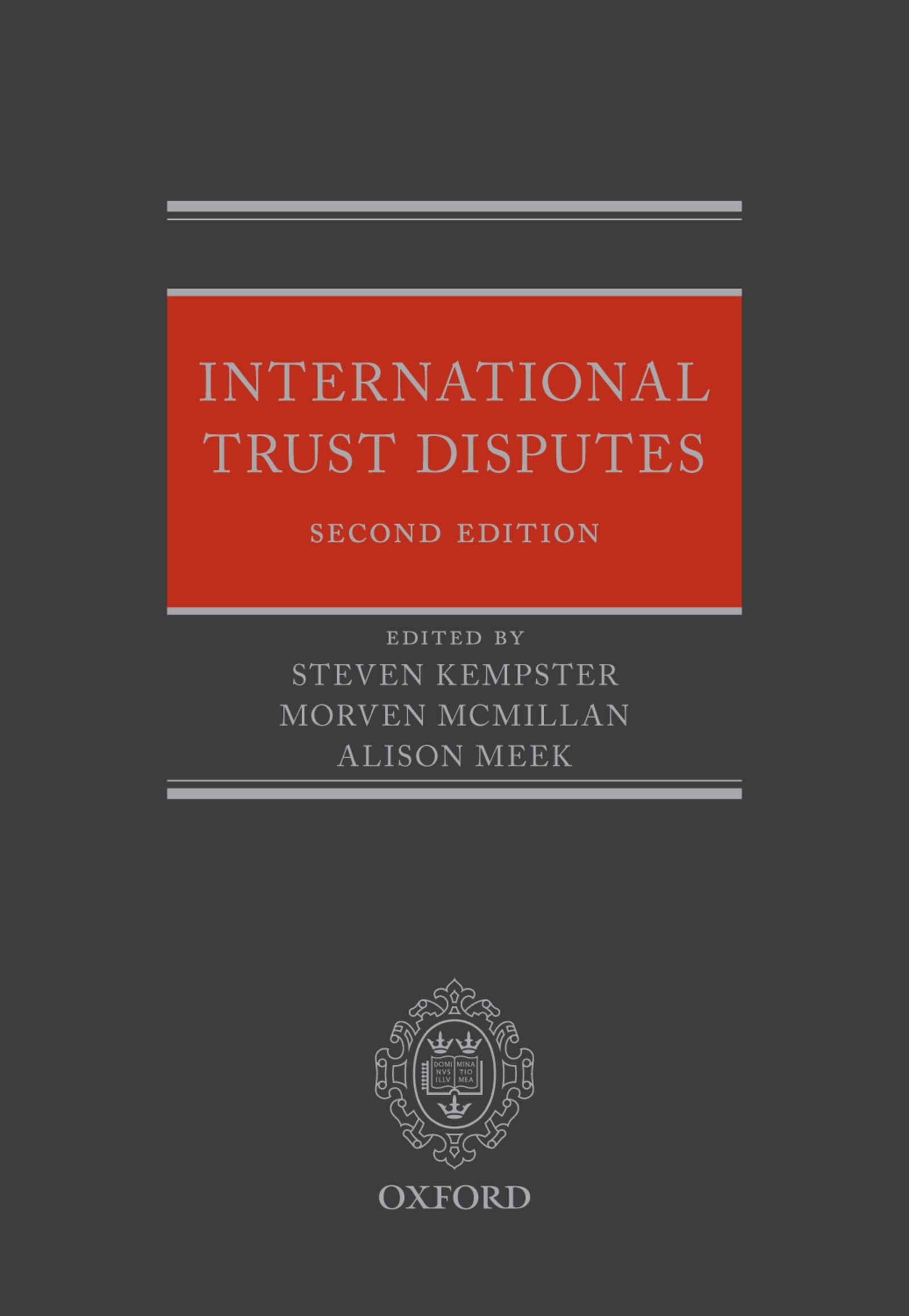International Trust Disputes
by Steven Kempster, Morven McMillan, Alison Meek Sara Collins
2020-07-11 12:55:22
International Trust Disputes
by Steven Kempster, Morven McMillan, Alison Meek Sara Collins
2020-07-11 12:55:22
The new edition of this leading work continues to provide full analysis of the legal and practical aspects arising in trusts disputes, with attention to jurisdiction-specific issues covering ten of the most relevant territories.Since the last edition...
Read more
The new edition of this leading work continues to provide full analysis of the legal and practical aspects arising in trusts disputes, with attention to jurisdiction-specific issues covering ten of the most relevant territories.Since the last edition the law has developed at a fast pace and trust disputes continue to increase as international trusts reach the second, third and sometimes fourth generation of beneficiary. In particular, there have been changes made to the law of succession in England and Wales (IntestacyRules 2014) and case law such as Ilott v The Blue Cross [2017] which consider the implications for family provision under the Inheritance (Provision for Family and Dependants) Act 1975. Developments relating to the position of trusts in matrimonial disputes are analysed and the issues for trustdisputes and rights to information under The Data Protection Act (Dawson Damer v Taylor Wessing [2017]) are also included. Other important case law which is now considered include Pitt v Holt, re Futter [2013] and the development of the law of mistake thereafter, and the Pugachev litigation on shamtrusts.A new chapter is included on the law in the Bahamas reflecting the importance of the jurisdiction to current international trusts disputes.International Trust Disputes provides a comprehensive and thorough treatment of this topic. Acting as a specialist guide for practitioners, it offers a survey of the special considerations that may arise with regard to trust disputes as well as a definitive guide to the issues which may beencountered in the jurisdictions where disputes are most likely to take place.
Less
